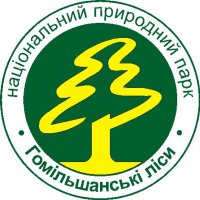 Appeal of Executive Committee of the European Dry Grassland Group of the International Association for Vegetation Science
Appeal of Executive Committee of the European Dry Grassland Group of the International Association for Vegetation Science
to stop afforestation of Ukrainian steppes
Ukrainian steppes are a unique and indispensable part of European natural heritage. Steppe ecosystems are of high biodiversity and have a high potential for carbon storage in below ground biomass and humus content of the soil. Thus, Ukrainian steppes have a crucial importance in biodiversity conservation and climate protection.
Environmental problems are beyond the state borders. The authorities of every state have to contribute to their solution. In recognition of this fact, Ukraine has signed and ratified several international conventions on the protection of biological diversity, e.g. the Convention on Biological Diversity and the Convention on the Conservation of European Wildlife and Natural Habitats (Bern Convention).
We therefore are troubled by information on large scale afforestation of Ukrainian steppes by the Ukrainian State Agency of Forest Resources. Even though steppes are termed “low-yielding, degraded and eroding land” in the course of these activities, photos and other evidence presented at scientific conferences and on the internet prove otherwise. At the same time regions more proper for forest growth, i.e. Carpathians and Polesye, suffer from deforestation.
The above-mentioned international conventions forbid the destruction of natural habitats such as steppes and dry grasslands. Moreover, conversion natural steppes into forest have no significant contribution to climate protection. Artificially created forests plantations in the steppe zone may fail international certification when satellite data show their low quality. Ploughing of steppe in order to prepare afforestation may even stimulate decomposition of below ground biomass and humus, thus causing significant carbon dioxide emission in the first place.
We, Executive Committee of the European Dry Grassland Group, representing a European society of more than 600 scientists whose interests are associated with the protection, conservation and restoration of natural and semi-natural grasslands and in accordance with the spirit of Smolenice Grassland Declaration (Smolenice, Slovakia, June 2010) address this appeal to the Ukrainian authorities to change their strategy of climate protection by – conserving natural steppes and recover further steppe grasslands on abandoned agricultural lands in the steppe and forest steppe zones;
terminating afforestation to the forest and forest steppe zones and excluding alien tree species from afforestation programmes; generally avoiding afforestation of grassland.
The Executive Committee of the European Dry Grassland Group
Jürgen Dengler
Biocentre Klein Flottbek Univ. of Hamburg, GERMANY
Monika Janišová
Faculty of Geography and Earth Sciences, Univ. of Latvia, Riga, LATVIA
Solvita Rûsina
Inst. of Botany, Slovak Academy of Sciences Banska Bystrica, SLOVAK REPUBLIC
Stephen Venn
Faculty of Biological & Environmental Sciences, Univ. of Helsinki, FINLAND



